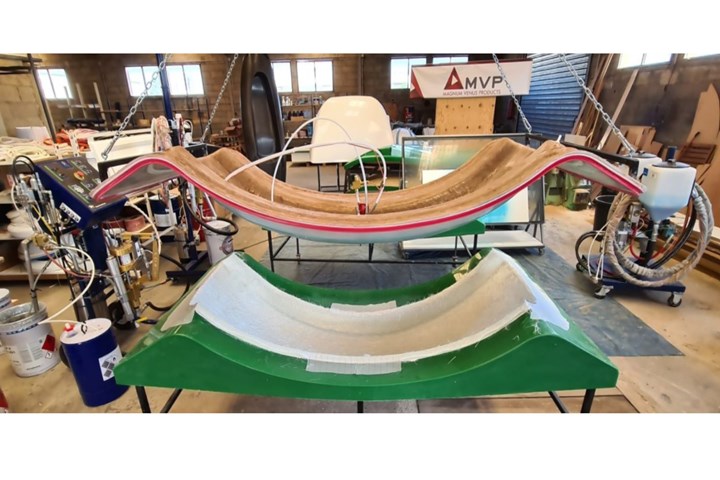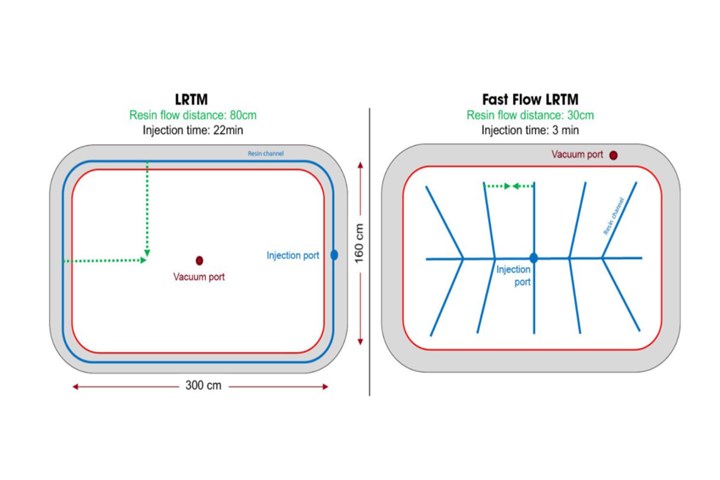MVP launches Fast Flow LRTM process to speed closed mold part production
Increasing part production by decreasing injection times, Fast Flow LRTM is said to be capable of injecting a 50 square foot part in under four minutes using only one injection port.

Photo Credit: MVP
Magnum Venus Products (MVP; Knoxville, Tenn., U.S.) a global manufacturer of fluid movement and production solutions for industrial applications, launched on August 17 a new process for closed molding to increase part production by decreasing injection times. The new technique, named Fast Flow LRTM, is said to be a blend of MVP’s flex molding process and light resin transfer molding (LRTM) and uses collapsible resin channels for a faster resin flow.
According to MVP, the process resulted in the need to meet faster cure times for large parts using high viscosity resins such as fire retardant materials. Further trials and testing are currently underway with a large automotive manufacturer.
The company notes that when using a traditional LRTM mold, the resin flow speed is dependent on the distance between the resin channel and center of the part during injection. Utilizing the same silicone collapsible resin channels developed for its flex molding process, MVP’s Fast Flow LRTM technique uses a unique channel arrangement allowing channels to be installed closer together to decrease the resin flow distance and speed up injection times. This process is said to be capable of injecting a 50 square foot part in under four minutes using only one injection port, while also delivering a good back side surface aspect equivalent to traditional LRTM. By injecting the resin from the center to the border, the part demolds with a finished look and no visible resin channels, wasted materials or excess resin.

Fast Flow LRTM uses a unique resin channel design with the injection port located at the center of the part. By injecting the part from the center to the border, the part can be precisely finished with no trimming required. Photo Credit: MVP
Related Content
-
IMDEA introduces digital twin for real-time analysis of composite materials production
Newly designed digital twin by IMDEA and Technical University of Madrid researchers enables manufacturers to see inside composite materials as they are being produced, facilitating early detection of faults.
-
RTM, dry braided fabric enable faster, cost-effective manufacture for hydrokinetic turbine components
Switching from prepreg to RTM led to significant time and cost savings for the manufacture of fiberglass struts and complex carbon fiber composite foils that power ORPC’s RivGen systems.
-
All-recycled, needle-punched nonwoven CFRP slashes carbon footprint of Formula 2 seat
Dallara and Tenowo collaborate to produce a race-ready Formula 2 seat using recycled carbon fiber, reducing CO2 emissions by 97.5% compared to virgin materials.



